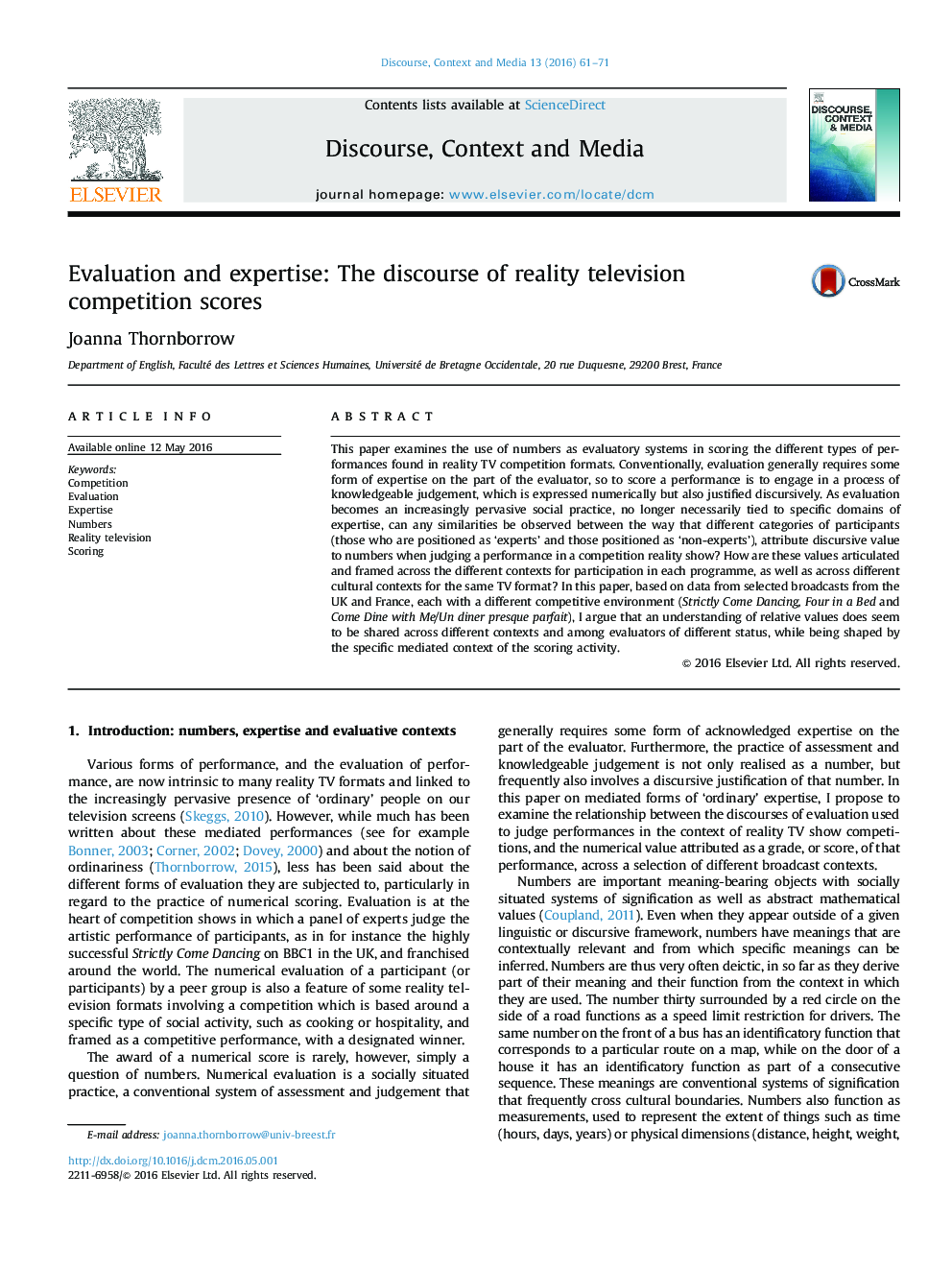| Article ID | Journal | Published Year | Pages | File Type |
|---|---|---|---|---|
| 5124041 | Discourse, Context & Media | 2016 | 11 Pages |
This paper examines the use of numbers as evaluatory systems in scoring the different types of performances found in reality TV competition formats. Conventionally, evaluation generally requires some form of expertise on the part of the evaluator, so to score a performance is to engage in a process of knowledgeable judgement, which is expressed numerically but also justified discursively. As evaluation becomes an increasingly pervasive social practice, no longer necessarily tied to specific domains of expertise, can any similarities be observed between the way that different categories of participants (those who are positioned as 'experts' and those positioned as 'non-experts'), attribute discursive value to numbers when judging a performance in a competition reality show? How are these values articulated and framed across the different contexts for participation in each programme, as well as across different cultural contexts for the same TV format? In this paper, based on data from selected broadcasts from the UK and France, each with a different competitive environment (Strictly Come Dancing, Four in a Bed and Come Dine with Me/Un diner presque parfait), I argue that an understanding of relative values does seem to be shared across different contexts and among evaluators of different status, while being shaped by the specific mediated context of the scoring activity.
